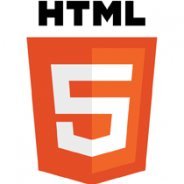
Say you’re a multibillion dollar technology company, and you’re planning where to invest $100 million. Where would you put the money? There are lots of possible answers to this, but I’m intrigued by Intel’s answer.
It’s just set up a $100 million Intel Capital AppUp Fund, which will invest in “software tools and services companies developing innovative applications and digital content for the mobile and PC ecosystem available at the Intel AppUp center”.
The aim is to encourage and support companies that will create new experiences for web-connected devices.
Intel says that while the fund will invest in a range of technologies, key areas include cross-platform technologies like HTML5 and experiences designed for Ultrabooks. It’s amazing to think that a company is stumping up $100 million for apps and content, with HTML5 being one of its top priorities.
There are a number of reasons why HTML5 could be a good foundation for profitable apps.
Firstly, you can develop one app and have it run across different platforms. Of course, there will always be things that need to be adapted on different devices to take account of screen resolutions and input devices, for example.
But the core code will be able to run without modification on a wide range of devices, which dramatically cuts the cost of development.
Secondly, although HTML5 requires a lot of skill to write well, it’s building on languages that are already well known and widely understood. There are a lot of people who know how to make basic interactive web pages and can now make the hop into app development, without having to learn to program in a proper programming language like C.
That increases the pool of talent available, which means over time, it should be more cost effective to source app development expertise.
Those both argue about the costs, though, and the key thing is being able to monetise HTML5. This is where Intel’s interest lies. Intel has an app store, called the Intel AppUp center, and is now accepting HTML5 apps into it.
In fact, the company’s not just accepting them: it’s actively soliciting them, giving out cash rewards to the first 200 submitted and validated and offering super-sleek Ultrabooks to the best apps in each of five categories. You can find out more about how you can win prizes for your HTML5 apps here.
There are also several events taking place that you can use to get up to speed with Intel’s proposition and how you can sell HTML5 apps.
• Visit Apps World, a conference and exhibition coming to London on 29-30 November. You have to pay to get into the premium conference, but you can visit the exhibition for free, and there’s a series of workshops taking place on the exhibition floor. On the first day of the event, Intel will be delivering a free workshop about selling HTML5 apps through the Intel AppUp developer program. It takes place at 10.20am on Tuesday 29 November. You can find out more about the free Developer’s Zone and register here.
• Attend a free webinar. On Wednesday 7 December at 10.30am, there’s a free webinar which will introduce the Intel AppUp developer program, with a particular emphasis on best practice in HTML5 apps. You can learn about the HTML5 Encapsulator that makes it easy to turn your HTML5 into an AppUp-ready app. Places are limited, so if you’re interested, reserve your webinar place here.
It can be hard to make time for events like this when you’re coding to a deadline, but they’re a good way to learn what’s going on in technology and the apps business.
Even if you don’t have any plans to write a HTML5 game now, it’s worth picking up all the knowledge you can.
I came across a quote this week attributed to Hugh of St Victor, a 12th century writer. He wrote: “Learn everything.
It will all come in useful somewhere.” Amen to that.
—
This blog post is written by Softtalkmobile, and is sponsored by the Intel AppUp developer program, a single channel for distributing apps to multiple devices, multiple operating systems, and multiple app stores.
Source Develop
Most Popular Tech Stories
Latest News
How to make your own Meta Quest 3 3D printed accessories on Creality's K1C 3D Printer
We have covered various aspects of 3D printing here at Readwrite over the last few months, looking mainly at how to use different 3D printers for different projects to create...




















